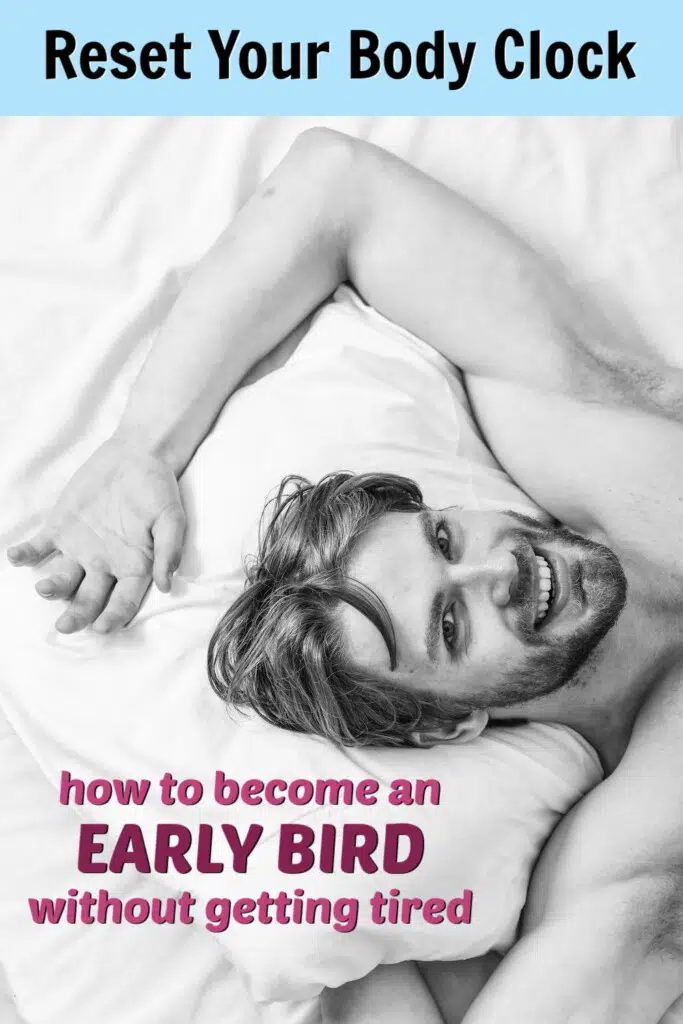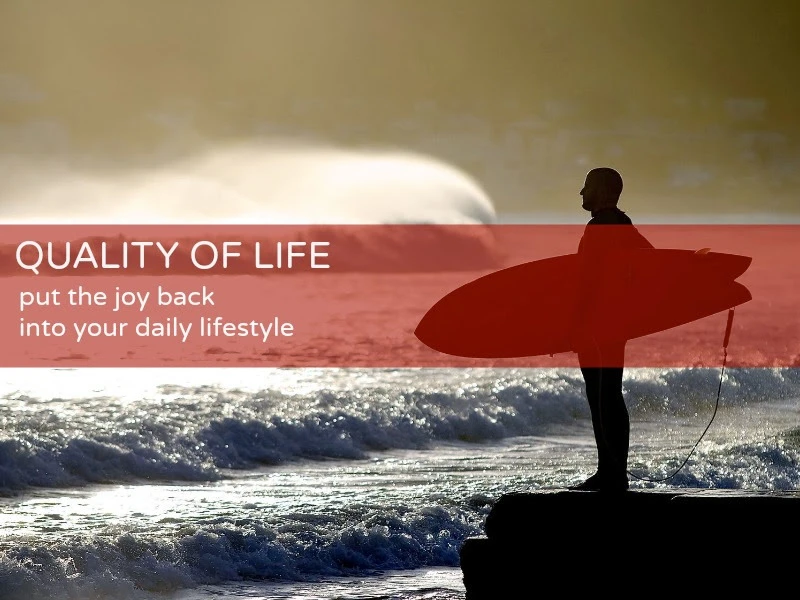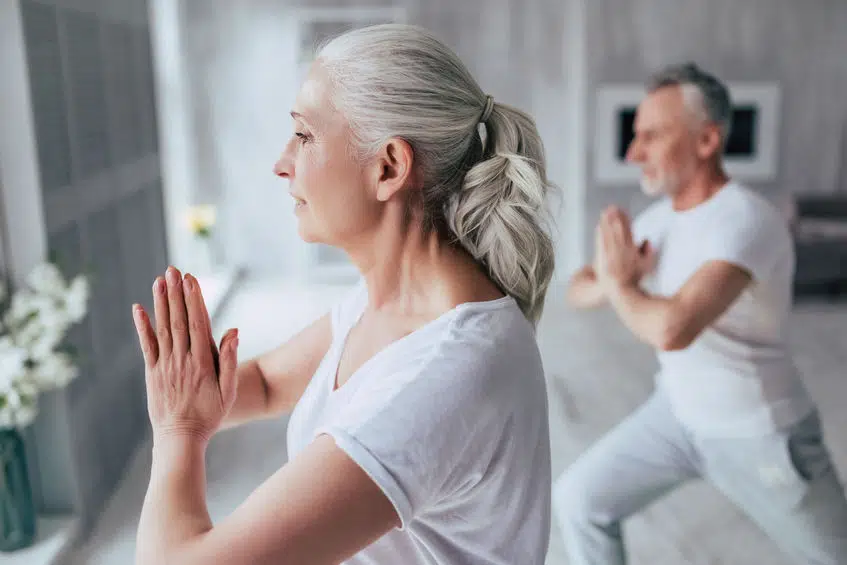Ever wondered what it would be like to be an early riser? One of those people who lunges out of bed enthusiastically at the crack of dawn, ready to embark on a highly productive day of adventure? Below, I share the science behind early-rising and why it’s healthier. You’ll see how to adjust your body clock to be ready for bed by 9 p.m., including 16 invaluable tips for creating a peaceful bedtime routine and a fantastic morning routine.
16 Tips for Better Bedtime and Morning Routines
You can rise early and enjoy life more fully.
Here’s how you can set your body clock to early bird so you can lose excess fat, get more done, and feel great.
Becoming an early riser isn’t as hard as you might think. In fact, you can transform yourself into an early bird with ease.
The motivational video located lower within this article will also help you get started.
Early Bird VS Night Owl
I understand why a lot of people are night owls. Years ago, I was one of them – staying up late to work, watching TV, reading novels, or scrolling through social media on my phone.
But ultimately, I realized I wasn’t at my healthiest as a night owl.
As you’ll see below, it’s also not intended to be a typical state of being for most people.
Early birds feel brightest and most productive earlier in the day, with their energy waning as the day progresses.
Night owls are people who come alive after dark.
It would be unfair to insist that every night owl is unhealthy and has unnatural cycles.
In truth, some genuine night owls are highly productive and live healthy lives. They feel more clear-headed and energized in the evenings.
However, these true night owls are a rare breed.
Most people who think of themselves as night owls are early birds who gradually developed a set of unfortunate habits that threw them off their natural cycles.
The Science Behind the Early Riser
Your body follows a natural circadian rhythm, an internal clock that regulates the sleep-wake cycle.
This rhythm is influenced by external cues such as light and temperature.
When you align your waking hours with this natural rhythm, you’re more likely to experience improved sleep quality and overall well-being.

Several studies suggest a correlation between being a morning person and better physical and mental health:
- For example, one study (sources at end of article) published in the Journal of Psychiatric Research found that morning people had lower levels of depression and better sleep quality than evening people.
- Another study published in the Journal of Clinical Endocrinology and Metabolism found that morning people had lower levels of the stress hormone cortisol and better insulin sensitivity.
- Another study indicates early risers are more productive is published in the journal Personality and Individual Differences. This research established that early risers (morning-type individuals) had higher grades than night owls (evening-type individuals) in a sample of college students. This suggests that early rising may be positively associated with performance.
- A study conducted by researchers at the University of Toronto and published in the journal Emotion in 2017 found that individuals who considered themselves morning people reported higher levels of overall life satisfaction and happiness than those who identified as evening people. The study was based on surveys filled out by over 90,000 participants.
The Benefits of Being an Early Riser
Yes, some people are just genetically night owls. They simply do better at night.
But science shows us that most of us would thrive more in the mornings if only we could get past the awkward period of resetting our body clocks:
Improved Mental Health
Waking up early provides you with quiet, uninterrupted time. This peaceful atmosphere can be conducive to meditation, mindfulness, or simply indulging in activities you love. This early morning ‘me-time’ can significantly reduce stress and anxiety, promoting better mental health.
Enhanced Productivity of the Early Riser
Morning people often find their minds sharpest and most creative during the early hours. With fewer distractions, you can focus on your tasks and accomplish more in less time. This heightened focus can boost your overall productivity throughout the day.
Better Physical Health
Studies have shown that early risers tend to have healthier lifestyles. They are more likely to exercise regularly and make healthier food choices. Additionally, exposure to morning sunlight provides essential Vitamin D, promoting stronger bones and a more robust immune system.
Improved Sleep Quality
Surprisingly, waking up early can also improve the quality of your sleep. Establishing a consistent wake-up time helps regulate your sleep schedule, making it easier to fall asleep at night. This leads to a more restful sleep, allowing your body and mind to rejuvenate fully.
A recent study published in Proceedings of the National Academy of Sciences in 2014 found that exposure to the blue light emitted by electronic devices (such as phones, laptops, and e-readers) in the evenings can disrupt circadian rhythms and lead to poor sleep quality. The study has practical implications for people as it suggests limiting evening screen time can improve sleep and help maintain a healthy sleep-wake cycle.
Circadian Rhythm is a natural biological process in humans that times key events within the body according to the earth’s twenty-four-hour cycle. These physiological events can be disturbed by sudden light fluctuations.
Light is the enemy of a good night’s sleep. It prevents your body from producing melatonin, a hormone that makes you feel tired, by regulating the sleep-wake cycle.
When light enters your eyes and hits your optic nerve, it sends signals to the suprachiasmatic nucleus (SCN), which controls human circadian rhythms. The SCN interprets these signals as daylight, which tells your body to stay awake instead of getting ready for bedtime.

How to Start Your Day Right: The Wind-Down Routine and the Wake-Up Routine
Starting your nightly wind-down routine after your body starts secreting its melatonin hormone is missing a prime opportunity.
A person who is ready for bed at 9:00 p.m. is an early bird.
Their hands and face are cleaned, their teeth are flossed and brushed, their skin is moisturized, and their front door is locked before 9:00 p.m.
That way, when their hormone melatonin begins to secrete, they can leverage that magical moment, turn out the lights, and get into bed.
I encourage you to experiment with the following methods to see if, over time and when done consistently, they begin to make a positive difference in your life:
1. Gradual Adjustments Only, Until You Become an Official Early Riser
If you’re used to sleeping in, suddenly waking up at 5 AM might not be sustainable. Instead, adjust your wake-up time gradually. Try waking up just 15-30 minutes earlier each day until you reach your desired waking time.
2. Consciously Decide It’s Time to Wind Down
Establish a relaxing bedtime routine to signal your body that it’s time to wind down. Avoid activities and electronics before bed. Engage in calming hobbies like reading, taking a warm bath, or practicing deep breathing exercises.
3. Optimize Your Sleep Environment
Make your bedroom conducive to sleep. Keep the room dark, quiet, and at a comfortable temperature. Invest in a comfortable mattress and pillows that support a good night’s sleep. These adjustments can significantly enhance your sleep quality.
4. Limit Evening Stimulants
Avoid caffeine in the evening. These can disrupt your sleep and make it harder to wake up feeling refreshed. Opt for herbal tea or a light snack if you’re feeling hungry before bedtime.
5. Morning or Afternoon Exercise for the Early Riser
Engaging in physical activity in the morning or afternoon energizes you for the rest of the day and helps regulate your sleep patterns. Even a short workout session can significantly affect your ability to wake up early and feel refreshed. For some people, after-dark workouts mess with their circadian rhythms.
6. Time Your Eating
For the sake of your body clock, have no big meals before bed. Avoid snacking or eating a big meal before bedtime if you want to reset your body clock to become an early riser
- Eating a lot at night is tempting because carbohydrates help you feel sleepy.
- But that can also lead to indigestion or gas at night — not ideal if you’re trying to get an early start the following day.
- People who eat later in the evening tend to experience acid reflux more often.
- Also, your body must work harder to digest a stomach full of food while you sleep, which can lead to an exhausting morning.
Instead, try eating smaller portions throughout the day so that your body doesn’t have too much food on its hands at once when it comes time for bed.
7. Consider Low-Dosage Melatonin Supplementation
Melatonin is a natural hormone that helps regulate your sleep cycle.
But melatonin does more than help you sleep:
- Research on melatonin has established it as a master hormone.
- According to Examine.com, “Melatonin may have general neuroprotective effects (brain benefits) related to its antioxidant impact.
- Melatonin also has several anti-cancer properties. Melatonin potentially stops your body from gaining more fat.”
The problem with melatonin supplements is that many take too high a dosage.
It’s likely that the younger you are, the less dosage you need. I’m 58 years old, and I take 0.5 mg each night before bed, which is a smaller dose than many others. Ask your medical doctor whether melatonin supplementation is a good idea for you and, if so, what the appropriate dosage is.
Each evening, the feeling of sleepiness tends to come in intermittent waves.
For most people, the first wave of sleepiness washes through sometime between 8:00-9:30 pm.
Most people ignore this first wave – but what would happen if you honored it and leveraged it to retire early?
I’ll tell you what would happen: you’d wake up early the next morning feeling fantastic and have more time to enjoy your morning routine and jump on your day.
“…for the same reasons that I felt most creative on Saturday mornings and on planes, 4 a.m. has become a place of productive peace. That feeling is why I love what I do. I don’t need a vacation. I don’t need to step away. I just need a couple hours a day before anyone else is up.”
—Paul Dejoe
8. Have Apple Cider Vinegar in the Morning to Balance Your Body’s Internal pH
Why do some people have a fantastic morning almost every day while others start their day feeling harried and disorganized?
The answer is found in their morning routine.
Distinct habits have been identified among those possessing fantastic health and financial security, particularly within their morning routines.
By consuming apple cider vinegar in the morning, you’re helping to process any problematic fats hanging around in your digestion from the previous night’s dinner or dessert.
By giving your body this acidic boost, you’re sending a signal that it doesn’t have to churn out extra acid – and therefore, you help prevent symptoms of over-acidity such as heartburn, esophageal acid reflux, or skin rosacea.
More research is needed, but there have been indications that apple cider vinegar also helps reduce glucose spikes, suppresses appetite, and metabolizes fat stores for energy.
The most affordable solution is to dilute a teaspoon of apple cider vinegar into a small amount of water.
In my case, I prefer to have a capsule of apple cider vinegar each morning.
9. Use Morning Journal Prompts to Guide Your First Thoughts of the Day toward Positivity
Everyone has an internal dialogue – the random chatter of thoughts that occurs throughout the day.

There is a connection between what the dialogue sounds like inside your head and what happens to you in your external life.
The more positive the dialogue, the better you feel.
- When you wake up in the morning, are you incentivized?
- After opening your eyes, do you lunge out of bed with enthusiasm and joy?
The key to having a fantastic rest of your life is to have an abundance of fantastic days.
And the key to having a fantastic day is to have a fantastic morning.
Morning journal prompts can help you with this process. A morning journal prompt is a specific question designed to inspire reflection during your morning routine. For example:
- “What are three things I’m grateful for today?”
- “What is my top goal for the day, and what steps can I take to achieve it?”
- “What is a challenge I anticipate today, and how can I approach it positively?”
However you happen to define success, you can increase that success by guiding those thoughts that play inside your head toward only the most positive.
This is especially important in the morning, as the thoughts with which you begin your day have a way of creating momentum – they can determine that day’s experiences.
It’s not that you can’t create any success via the negative route: plenty of fortunes have been made – and power acquired – via bombastic methods.
But success is more than money and power; it’s also fantastic health.
“How can you ‘gamify’ your day to increase your feelings of accomplishment?”
My life experience has taught me that genuine positivity creates good health.
In his book The Law of Attraction, author Michael Losier tackles this notion in vibrational terms. He explains that a positive inner dialogue leads to a giving off of positive vibrations.
And positive vibrations attract positive outcomes.
The healthier the chatter is inside your mind, the healthier your outer life will become.
I encourage you to start paying attention to your inner dialogue.
Begin to focus on more positive thought processes. You might be amazed at the fantastic impact it has on your productivity.
How aware are you of your internal dialogue?
In meditation, they call it “watching the watcher.”
By learning to objectively witness your self-talk as it occurs and giving it a label (“oh, that’s my inner-critic talking…” “that’s my rebel talking…”), you can start to gently guide yourself to more encouraging types of self-talk.
The process becomes simple once you learn how to do it.
“I understood that any true or lasting lifestyle change would require rigor, specificity, and accountability. Vague notions of ‘eating better’ or maybe ‘going to the gym more often’ just weren’t going to work. I needed an urgent and stringent plan. I needed to draw a line in the sand” — Rich Roll / ultra-marathoner, on getting fit after 40
More Helpful Tips for Morning Journal Prompts
You can consciously:
- observe your negative thoughts only long enough to identify them
- then quickly guide your thoughts to what you are grateful for and admire most about yourself.
During your quiet 15 minutes, you may want to sit down with a cup of tea and try these morning journal prompts to help you access positive thoughts and begin writing:
- What would I love to happen today?
- What’s one positive feeling I hope to experience today?
- What are three small goals I would love to accomplish today?
That last journal prompt was on priorities. Determine which activities would give you the most favorable return if you completed them today and write them down. Try to make at least one of those items revenue-producing if you can.
Part of your new, fantastic morning routine should include clarifying for yourself what your three biggest priorities are for your day ahead.
As you use the above prompts to write in your morning journal:
- Try things that you didn’t write about yesterday.
- Try not to intellectualize; instead, actually feel the feelings that you’re imagining.
- If your mind wanders into a negative thought, do not shame yourself. Instead, gently guide your thoughts back into a more positive area.
10. Hydrate with a Daily Glass of Lemon Water Each Morning
Later, in mid-morning – long after I’ve already had my capsule of apple cider vinegar – I have a glass of lemon water.
I squeeze a small chunk of a lemon wedge over the glass until I get approximately half a teaspoon of juice into the water.
Due to its citric-acid content, lemon water is probably helpful in preventing kidney stones‘ formation (and reducing their growth).
Lemon is a helpful food for humans. Even though lemon is acidic, it instantly converts to alkaline within the stomach.
Overall, your body doesn’t want to be too alkaline or too acidic for long periods.
The modern human is usually way too acidic, so lemon water might help balance pH (if you ever have hiccups caused by over-acidity, lemon water can often solve the problem within seconds).
Perhaps the most significant benefit of lemon water is that it’s hydrating. Many people wake in the morning dehydrated, and the routine of having a daily glass of lemon water is an enjoyable way to remedy that.
I’m astounded by the number of people who have a cup of coffee first thing in the morning before they’ve even had a tall glass of water.
Your body is dehydrated after 8 hours of sleep, so give it the nourishment that it needs – especially if you’re a person who exercises intensely or frequently.
If you’re listening carefully to how your body feels after consuming that first tall glass of water right after waking, you’ll likely notice an improvement immediately. This is a terrific way to prime your body for an enjoyable and productive day.
To protect your tooth enamel, I suggest rinsing your mouth out with water after having either lemon juice or apple cider vinegar.
11. Be Mindful of the Differences in How (and When) You Feel Fantastic
Pay close attention to the short- and long-term impact of your small changes.
When I started improving my schedule, I could exercise more, and then I began noticing that I was sleeping more deeply.
I also felt like I was more focused while at my desk at work – so many of us have more or less sedentary jobs, and engaging in regular exercise helps bring balance to our lifestyle. I felt less stressed.
When we exercise, our minds shift their focus from the mental to the physical – allowing us to clear our heads of all the anxious information and emotions that often cloud them.
12. Experience the Benefits of Having Olive Oil in the Late Morning
Your hair and skin respond positively to healthy fats.
Olive oil can be particularly helpful as it contains vitamin E and antioxidants and is probably partly responsible for why the Mediterranean diet improves longevity.
For those who eat lower-carbohydrate diets, olive oil is an easy way to stay topped up on the healthy fats that help make a low-carb diet sustainable – by suppressing appetite and providing ketones for energy.
I have a teaspoon of olive oil daily in the late morning.
Researchers are establishing several benefits of the compounds within olive oil (see sources at end of article):
- Oleic acid and squalene for their cancer prevention and cancer-reducing potential.
- Antimicrobial activity of hydroxytyrosol, tyrosol, and oleuropein.
- The overall positive impact on heart health includes reducing blood pressure and low-density lipoprotein (LDL) cholesterol.
13. Cultivate Your Relationship Garden
A productive place to begin increasing your awareness is in your tribe – the people in your life – and I encourage you to reflect objectively on your relationships.
What I’ve learned first-hand is that prosperity springs from relationships. The more people you know and like, the more potential for money to enter your life.
Beware of counterfeit intimacy.
Superficiality and isolation are two of our most discouraging and harmful habits.
Reconnecting with others improves health and prosperity. We need that opportunity to develop records of trustworthiness with each other – so that we can interdepend on one another.
It’s in our best interests to make the effort to reach out and connect with others, to be genuinely curious about others’ feelings, thoughts, and experiences.
In my case, when my relationships improved, my net worth significantly increased. Also, my physical health improved.
Quality social connections are a verified component of a long life expectancy. Healthy relationships are a fantastic investment.
Each morning, send a friend a text to let them know you’re thinking about them.
14. Take a Fresh Look at Your Vegetable Intake
Nutrition remains the easiest and most effective way to overhaul your health.
More specifically, increasing your daily intake of vegetables can be transforming.
I know no better way of consistently getting more of the right kind of vegetables into your body than freshly made green smoothies.
The right recipes can help to take you from beginner to intermediate to advanced smoothie-making.

I recommend nutrient-dense, delicious recipes – comprised of ingredients that are uniquely beneficial to your own body’s chemistry.
Though smoothie ingredients cost a bit upfront, ultimately, green smoothies help me save money because I rarely eat out.
And I no longer have to grab “emergency” food on the go when my blood sugar drops because my blood sugar rarely drops unexpectedly anymore. Green smoothies are fantastic at providing me with sustained energy.
I don’t spend as much money on nutritional supplements because I get many of them naturally from whole-food sources within my green smoothies.
One of the critical tricks to unlocking your longevity potential is consuming high amounts of dark, leafy greens daily. Green smoothies provide an easy and delicious solution.
15. Listen to the Best Morning Podcasts
Each person’s day is unique, but most of us must complete certain household chores daily. To make that time more productive and enjoyable, I like to listen to the best morning podcasts I can find.
I especially like podcasts that make me laugh.
I do a lot of meal preparation each day. I’m careful with my daily diet, so I don’t usually eat takeout or at restaurants. Listening to podcasts while I do meal prep, chores, or driving helps make my day more enjoyable.
You likely have your favorite podcasts; my only recommendation is to stay away from anything political or contentious. Keep it light and positive so that the rest of your day proceeds with good mental health.
16. Make Improvements to How You Allocate Your Time and Energy
Taking a fresh and honest look at your typical morning routine is worthwhile and challenges you to make minor improvements.
There are enough hours in the week to do what you need to do.
There are 168 hours each week, meaning you probably have more time than you think.
168 is a lot of hours. In those many hours, you can earn income, spend quality time with your family and friends, and do all your self-care and health protocols – including fitness training.
Yes, it can be done. However, it requires one thing: preparation.
If you’d like to try optimizing your schedule, the first – and perhaps most helpful – question to ask yourself is: am I a morning person or a night person?
Most people favor one time of the day over the other regarding their physical energy and mental clarity (even if only by a small margin).
First, you must know what your “peak” time of day is; that way, you can leverage it to your maximum benefit.
One of my primary goals last year was to integrate strength conditioning into my weekly schedule consistently. I found early mornings were advantageous to accomplishing this goal.
On days I traveled to the gym, early hours helped me avoid much of the car traffic, reducing my round-trip drive time from 2 hours to only 30 minutes.
I saved time by getting my muscles trained before work. I used to slip out of the office in the early afternoon for a quick lunch-hour workout, but I was showering, dressing, and prepping for work two times instead of one, which was inefficient.
An excellent way to optimize your schedule is to create a time budget – by doing a mock-up of your “ideal” calendar:
- First, just scribble down on paper – quickly, without overthinking it – everything that you would fit into a perfect week. Let’s say that your fantasy is to do one yoga class a week, one outdoor run, one CrossFit class – any appointment you can think of that you want to do each week.
- Next, start with a blank 7-day calendar and block out the times you work and the times you sleep. This calendar represents your “typical week” (just use any calendar app to do the mock-up). Remember: it’s for standing, reoccurring appointments only – don’t use your actual calendar.
- Then fit in any other standing appointments, such as helping your kids with homework, your weekly farmers’ market, etc.
- Finally, start taking those exercise sessions from your wish list and dropping them into available time slots within your 7-day standing appointments calendar.
This calendar represents your time budget.
Any blank spaces left available mean you can create even more self-care appointments (“meet John at the stadium steps for our weekly climbing workout,” etc.).
On the other hand, if you have more appointments than blank spaces, then you’ll need to prioritize (If you want to dive even more deeply into optimizing your schedule, check out Laura Vanderkam’s book You Have More Time Than You Think).
Take a Fresh Look at Your Productivity Style
The bottom line is this: longevity requires self-care.
And self-care requires time and energy.
Efficiency systems – or productivity tools – are fantastic at freeing up the time and energy necessary for self-care.
You can use productivity systems to leverage your success in these two ways:
- be more professionally competitive and get more done in a day than other professionals do, on average
- get more done in less time, create more free time that you will then spend with your loved ones, or do good-for-you stuff… like exercising.
Use a Quotidian Checklist for Your Morning Routine
While most checklists are used for “one-offs” (tasks that need doing only once), a quotidian checklist is a roster of your daily rituals.
Included on your quotidian list are the items that, when feeling rushed, you might be tempted to skip, forget, or do out of their ideal sequence.
How to Wake Up Feeling Fantastic Each Morning
Tasks already built into your muscle memory (“brush teeth”) are not included on this list.
IDEA: this list can be written in a Google Drive document that you keep on your computer and can print up a fresh copy each Sunday night for the week ahead, yet can also access it on the phone app.
EXCEPTION: if you have children in your household under the age of 6, this perhaps will not work well. Though small children benefit from some structure, they are too soulful and in-the-moment to thrive under a strictly linear regimen. Instead, just enjoy your time with them, be present, and take comfort in knowing that when they’re a bit older, you’ll be able to implement more organization into your family’s daily life.
Instead, for households with very young children, an Accomplishment Whiteboard might be more appropriate. That’s where you write down your day’s highlights. You can look at something at the end of the day and feel fantastic – like you’re winning!
“making lists help you spill out the contents of your cluttered brain so that you see what you have to do objectively”
Haven’t Been Successful Using a Checklist? Try Again
Everyone knows what it feels like to start a list and then set it aside and not use it.
But that doesn’t mean that there wasn’t significant value in creating the list in the first place.
And it doesn’t mean you shouldn’t make a fresh attempt.
Many of us have complicated relationships with our daily checklist of tasks – we ignore it, resent it, or can’t find it.
You don’t have to use a checklist every single day for the rest of your life; however, it’s wise for everyone to have a favorite productivity system that they’re playing with and fine-tuning.
Unlocking the Deeper Secrets to a Fantastic Morning Routine
If you are over 50 and are trying to get back into fantastic shape, know that even though it’s challenging, it’s also very possible. People do it all the time.
When you feel skeptical (or frustrated because you find yourself slipping into old habits), the inner affirmation can be, “I am in the process of becoming fitter because improving my health is important to me.”
This process will be more straightforward once you’ve had The Epiphany. There is a point in your life when it finally dawns on you that nothing is more important than your physical health.
At first, you might think your family is most important to you, but once you think it through more fully, you realize that you can’t take care of your loved ones if you have no energy for life.
You might already know that your good health is the foundation upon which you build everything else that truly matters. Before 50, many of us only realize this intellectually.
As we move past age 50, however, we realize it on a new level.
It hits us bone-deep.
What we say to ourselves – inside our minds – makes a difference.
Your success – including your health – increases exponentially when you eliminate negative self-talk and think more positive thoughts.
If you train your mind to do this, you will have unlocked one of the keys to how to be prosperous in every sense of the word.
“the cells of your body are eavesdropping on your thoughts” — Deepak Chopra
Be Phone-Free for the First Hour
The first hour of your morning can be entirely free from your phone. Once you get sucked into that black hole that is phone scrolling, you’ve lost a prime opportunity to build easy momentum for the day ahead.
Take 15 Fantastic Minutes to Just ‘Be’
If you have children in your home, see if you can awaken before the rest of the household and sit somewhere comfortable and quiet.
While seated, you can meditate, read your bucket list, look at your vision board, write in your morning journal – or any type of contemplative, silent endeavor that allows you to look objectively at your life and celebrate your own human experience (for those of you who walk your dogs in the morning, you can take the quietest route and do a walking meditation).

These 15 minutes of quiet contemplation will calm your mind and improve your focus for the entire day, especially if you do it each morning.
Establish Your Biggest Priorities for the Day
Mornings set the tone for the entire day:
- a beautifully organized morning creates a fantastic day of high productivity and abundant joy.
- a harried and frazzled morning tends to create a day of rushed appointments and higher stress.
Ultimately, when personal productivity is improved, relationships are deepened, and prosperity is increased.
Why? Because it’s all about energy.
Few dynamics are more energy-depleting than habitual chaos.
On the other hand, the more organized a person becomes and the more smoothly their morning routine flows, the more energy they will have left to devote to relationships, health and healing – their highest-value and highest-return activities.
When you install these habits, you, too, will begin to feel fantastic in your own body when you wake up and start each day.
Conclusion on Becoming an Early Riser
In our fast-paced world, where time is often considered a luxury, becoming an early riser can be a game-changer.
The tranquility of the early morning, the soft glow of dawn, and the chirping of birds are the serene moments often missed by those snug in their beds.
What I’ve found helpful is to go to bed 15 minutes earlier each night until I finally reach my desired new bedtime. By gradually transitioning to early bird, I avoid having a day of jet lag symptoms.
But being an early riser is more than just a habit; it’s a lifestyle choice that can significantly impact your health and productivity.
Embrace the tranquility of the early morning hours, and you’ll find yourself not just waking up early but truly living each day to its fullest potential.

Becoming an early riser is a transformative journey that can positively impact various aspects of your life. So, set your alarm, create a peaceful morning routine, and embark on the path to becoming a proud and successful early riser.
Incorporating these tips into your daily routine can gradually transform you into a morning person.
Remember, becoming an early riser is not just about waking up early; it’s about embracing the quiet moments of the morning, finding peace in the stillness, and setting a positive tone for the rest of your day.
So, rise and shine – your journey to better health and productivity begins with the first light of dawn.
Additional Resources for Resetting Your Body Clock:
Circadian Rhythm Sleep Disorders – https://my.clevelandclinic.org/health/diseases/12115-circadian-rhythm-disorders
Levandovski, R., Sasso, E., Silva, D., Hidalgo, M. P., Souza, S. S., Duarte, G., & Allebrandt, K. V. (2013). Impact of shift work on the diurnal variation of mood: a cross-sectional study. Journal of Psychiatric Research, 47(9), 1219-1224.
Night Owls, Cortisol, and Diabetes – https://www.rushmemorial.com/night-owls-vs-morning-people-which-lifestyle-is-healthier/
Alvaro, P. K., Roberts, R. M., & Harris, J. K. (2013). Systematic review assessing bidirectionality between sleep disturbances, anxiety, and depression. Sleep, 36(7), 1059-1068.
Delayed Sleep Phase – https://www.mayoclinic.org/diseases-conditions/delayed-sleep-phase/symptoms-causes/syc-20353340#
Early Birds Less Prone to Depression – https://www.colorado.edu/today/2018/06/15/early-birds-less-prone-depression
Night Owls Have More Excess Body Fat – https://www.webmd.com/diet/news/20130628/night-owls-may-pack-on-more-pounds
Citric Acid for Kidney Stones – https://pubmed.ncbi.nlm.nih.gov/26439475/
Clinical Applications of Olive Oil – https://pubmed.ncbi.nlm.nih.gov/18069902/
Functional Properties of Vinegar – https://pubmed.ncbi.nlm.nih.gov/24811350/
Rosacea and Diet pH – https://www.hmpgloballearningnetwork.com/site/thederm/content/examining-rosacea-comorbidities
